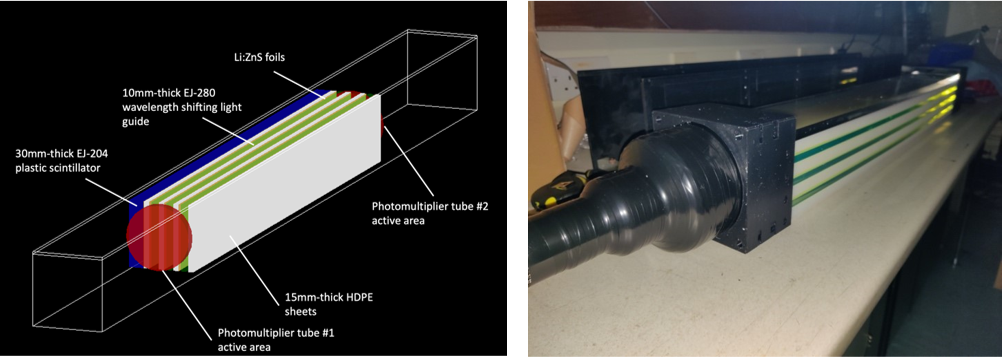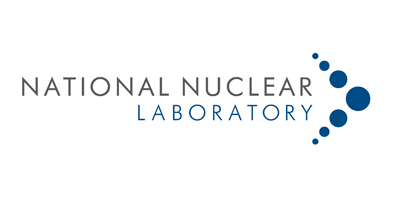Nuclear data: From earthbound reactors to cosmic cauldrons
In a recent talk at TEDx Aberystwyth, Dr Robin Smith of Sheffield Hallam University introduced nuclear data to new audiences. Part of AFCP’s nuclear data project, his work helps demystify and demonstrate the value of this research in a Net Zero world – and beyond.

Late last year, I had the opportunity to bring to life one of AFCP’s underpinning research projects. As a Lecturer in Physics at Sheffield Hallam University (SHU), I joined the programme in April 2020 to help strengthen UK nuclear data capability. Although a niche discipline of nuclear science, this area of research has vast applications, from supporting terrestrial nuclear reactors to helping us understand the cosmic reactions inside stars.
My TEDx Aberystwyth talk – titled Nuclear Data: On Earth and in the Cosmos – supported the event’s STEM agenda. Tasked with introducing audiences to emerging scientific concepts, I wanted to help demystify the abstract nature of nuclear data while demonstrating its importance to various areas of science. One of AFCP’s eleven technical projects, nuclear data underpins the entire fuel cycle to enable more accurate, informed modelling of future clean energy systems.
Advancing nuclear data through AFCP
In my talk, I defined nuclear data as the database of nuclear reaction information compiled over the last 70 years. Today, scientists use this data to model reactor systems – including those within an advanced fuel cycle.
As part of AFCP’s nuclear data project, my team’s work at SHU and the University of Sheffield is a key enabler of the nuclear fuel cycle. This project encompasses the underpinning data needed to create and run computational models of fuel cycle processes, impacting everything from fuel manufacture to storage and final disposal.
I am the lead researcher on the ATTIKUS (A Thick Target Inverse Kinematics experiment from Universities in Sheffield) project enabled by AFCP. This project is developing a novel solid-state experimental apparatus for nuclear data measurements, which will ultimately help improve the data that informs future nuclear deployment. The device will not only be easier to manufacture and use than existing systems but will also collect data in a shorter time period. Our team is applying this concept to (n,alpha) reactions in bulk material, which are difficult to measure without this innovative new technique.

Simulating a Net Zero world
Internationally, a lot of work goes into developing and improving nuclear data to allow for accurate modelling. Because changes to one bit of data can affect other parts, it requires a careful process of measurement, review, evaluation and verification to be sure that updates to nuclear data libraries are valid and beneficial.
As the UK accelerates the need for nuclear to achieve Net Zero by 2050, having available and accurate data is more crucial than ever before. However, our knowledge of materials that haven’t yet been used in the fuel cycle is limited. As our need to use higher computational power to run our models continues to rise, the impact of uncertainties in the data also increases.
This is where AFCP steps in. SHU and the wider nuclear data team are improving the generation, quality and application of nuclear data itself while working to explain the hidden value of this research on a larger scale. Through opportunities such as TEDx, we’re also finding new ways to amplify this critical work and ensure we’re best prepared to deploy future fuel cycle concepts.

To infinity and beyond 2050
Nuclear data underpins more than the transition to a sustainable fuel cycle. Although beyond the scope of AFCP, in my talk I detailed another exciting use of nuclear data research: the exploration of extra-terrestrial reactions. The talk complements my 2019 essay, which takes an interstellar approach to evaluating the purpose of nuclear physics in future scenarios.
Beyond planet Earth, nuclear data helps us understand the wider universe. The elements inside stars determine the brightness of supernovae, which researchers can then use to determine distances to galaxies across the universe, thus inferring how fast the universe is expanding. We currently know these reactions to only 10% accuracy, so improving nuclear data will help us understand the early origins of the universe and its eventual fate. Improving the modelling of the nuclear reactions that happen inside stars will therefore help unveil the age of the universe with greater accuracy than ever before.
There is significant overlap between the nuclear reactions required to understand astrophysics and those needed to model nuclear reactors here on Earth. The ATTIKUS detector has scope to measure a variety of nuclear reactions that have impact in both of these areas of research.
Making abstract science accessible
As part of a programme, AFCP’s nuclear data research is closely linked to different advanced fuel cycle technical requirements. This enables us to demonstrate the value and impact of nuclear data in a context that is more tangible for audiences unfamiliar with this niche area of nuclear science.
Nuclear data underpins many areas of science, from industrial contexts such as the development of an advanced fuel cycle to fundamental science like understanding the evolution of stars. Engaging non-scientific audiences is crucial to convey the importance of these future applications.
With engagement as a core strategy of AFCP, there is a true necessity to communicate complex nuclear science as we prepare for a clean energy future. Introducing people to the nuclear data lifecycle and how it impacts the world around them is invaluable as we continue delivering innovation in this vital area of nuclear science and technology.

View Robin’s talk in the TEDx Talks YouTube video.
AFCP is part of the Department for Business, Energy and Industrial Strategy’s (BEIS) £505m Energy Innovation Programme.
